Thinking about breastfeeding? You’re not the only one. Breastfeeding is one of the things that new mothers and mothers-to-be spend a lot of time thinking and worrying about. Also, everyone has their opinion on it too. We’re talking family members, medical professionals and even random people you’ve never met!
Often it can feel like a lot of pressure too. But remember, it’s your choice. And to make your decision easier, it’s important to be well informed. So to help, here we bust some of the most common myths around breastfeeding.
Myth or truth #1: Breastfeeding is the best way to feed your baby
Verdict: Partly true. Breastfeeding does offer some serious benefits to your baby and to you. Breastmilk is highly nutritious, plus it contains antibodies and other ingredients from your body that can boost your baby’s immune system and help protect them from a range of illnesses, both immediately and in the future. Breastfeeding can be a wonderful opportunity to bond with your baby too.
Bottle feeding does offer some advantages, however. Formula milk is also highly nutritious, while bottle feeding also gives you a chance to bond with your baby, and lets others share in feeding too, like your partner and other family members. It can also be faster and more convenient than breastfeeding. You can also express your breastmilk with a breast pump and then bottle feed it to your baby to make sure your little one receives its health benefits.
The truth is, different ways of feeding your baby have different benefits. There’s no one objectively best way. Some mothers breastfeed, some formula feed, others express milk, and some combination feed. What works best for you will depend on your personal circumstances.
Myth or truth 2: Most mothers breastfeed
Verdict: Partly true. A survey of mothers conducted by the NHS and Public Health England in 2015, found that nearly three quarters (73%) breastfed after giving birth. Less than half of mothers (44%) were still breastfeeding after two months, however. Another study, conducted by the Lancet, found that less than 1% of mothers in the UK were still breastfeeding by the time their babies were one year of age.
So, whilst most mothers do try breastfeeding, after a couple of months bottle feeding becomes more common.
Myth or truth #3: Breastmilk contains everything your baby needs
Verdict: False. Breastmilk is highly nutritious, and as long as you’re healthy and eat a reasonably balanced diet, it’s packed with almost all the energy, fats, proteins, vitamins and nutrients your baby needs. Except one. Breastmilk doesn’t contain enough vitamin D for babies. If you do breastfeed, it’s recommended you take a daily 10 mcg (400 IU) vitamin D supplement to make sure you and your baby are getting enough.
Myth or truth #4: You have to breastfeed right away. You won’t be able to later
Verdict: False. This myth is based on the idea that your body will stop producing breastmilk if your baby doesn’t feed right away. And also the idea that your baby won’t be able to learn to latch properly if they’ve already been bottle fed. Both aren’t true. Everyone is different, but most mothers can produce breastmilk, and plenty of it, even if they don’t breastfeed right away (it’s called relactation). Most babies will also quickly learn to latch and suckle even if they have been and are still bottle fed.
Myth or truth #5: You have to either breastfeed or bottle feed, you can’t do both
Verdict: False. Combining breast and bottle is called combination feeding and it’s an option many mothers take. It combines the best of both worlds, giving the benefits of breastmilk but with the flexibility of bottle feeding. To combination feed successfully, it’s advised that you establish either breast or bottle feeding first, before you introduce the second method of feeding.
Myth or truth #6: Breastfeeding is painful
Verdict: Partly true. For most mothers, breastfeeding isn’t painful, as long as your baby latches properly. However, everyone’s different – some babies will clamp harder than others and some mothers will have more sensitive nipples. Whilst most mothers find breastfeeding doesn’t hurt, for some it can be uncomfortable or even painful.
One thing that can help to make feeding easier, if not totally pain free, is a nursing or breastfeeding pillow. These can help take the strain of holding a baby for long periods of time or can be used to help mum get into a more comfortable position.
Myth or truth #7: Mothers instinctively know how to breastfeed
Verdict: False. Breastfeeding might look simple from the outside, and it’s a natural way of feeding a baby, so this leads many people into thinking it’s something mothers and babies slip into naturally. But that isn’t the case. Breastfeeding is a skill that needs to be learned, by both mother and baby. You’ll need to find out how to achieve a proper latch and experiment with what positions work best for the two of you. Luckily, there’s plenty of help on offer for breastfeeding, from your midwife or community nurse, and from online resources, like the NHS.
Myth or truth #8: You can’t breastfeed if you’re ill
Verdict: False. You need to make sure you rest and take care of yourself when you’re ill, but with many minor illnesses, you can still breastfeed. Talk to your doctor if you’re ill and are concerned about breastfeeding though.
Myth or truth #9: You can’t take medication when you breastfeed
Verdict: Partly true. Some medications won’t make it into your breastmilk, but some can. If you’re planning on breastfeeding, it’s very important to talk to your doctor first about all the medications you’re taking.
Myth or truth #10: Children who were breastfeed are more clingy
Verdict: False. There’s an old wives’ tale that says babies who were breastfed grow up to me more dependent and anxious children and adults. However, there’s no evidence to back this up, and it’s a huge oversimplification and misunderstanding of how personality develops. You don’t have to worry about breastfeeding affecting your child’s personality.
The final word – it’s your choice
A lot of pressure is put on new mothers to breastfeed. But whether you choose to or not, is your choice and nobody else’s. You have a range of options when it comes to feeding your little one, from breastfeeding and formula feeding, to expressing breastmilk for bottle feeding and combination feeding. All are good. And as long as your little one is eating, is gaining weight at a safe rate, and you’re both happy, that’s the only thing that matters.
Sources:
https://www.unicef.org/parenting/food-nutrition/14-myths-about-breastfeeding
centrastate.com/blog/breastfeeding-myth-busting-4-facts-new-moms-should-know
https://www.nct.org.uk/baby-toddler/feeding/early-days/benefits-breastfeeding
https://www.eufic.org/en/healthy-living/article/the-benefits-of-breastfeeding-for-parents-and-baby
https://www.nhs.uk/conditions/baby/breastfeeding-and-bottle-feeding/breastfeeding/



Leave a Comment: